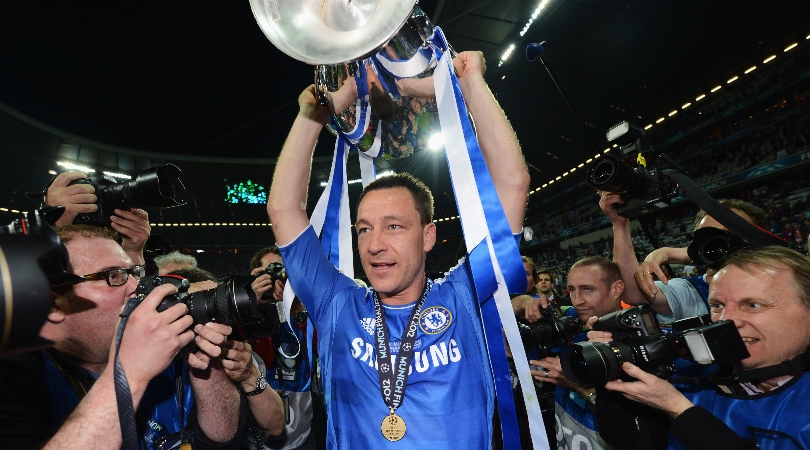What do scouts look for in footballers?
FFT steps inside the world of football scouting to find out exactly what the game's recruitment experts look for in their pursuit of talent

Harry Redknapp recently took a phone call from a scout, who told him he’d just watched the best prospect he’d seen in his 30-year search for talent.
The man – or schoolboy – in question was Exeter City’s 15-year-old prodigy Ethan Ampadu. The centre-back was named man-of-the-match on his professional debut, nearly a year before sitting his GCSE exams.
He’s a teenager in demand. Representatives from Arsenal and Manchester United have already been dispatched to St James Park and returned to their clubs with glowing reports.
But what exactly do scouts look for when they watch players and is there a secret to unearthing a star? FFT spoke to some of football’s finest talent spotters to find out…
The best features, fun and footballing quizzes, straight to your inbox every week.
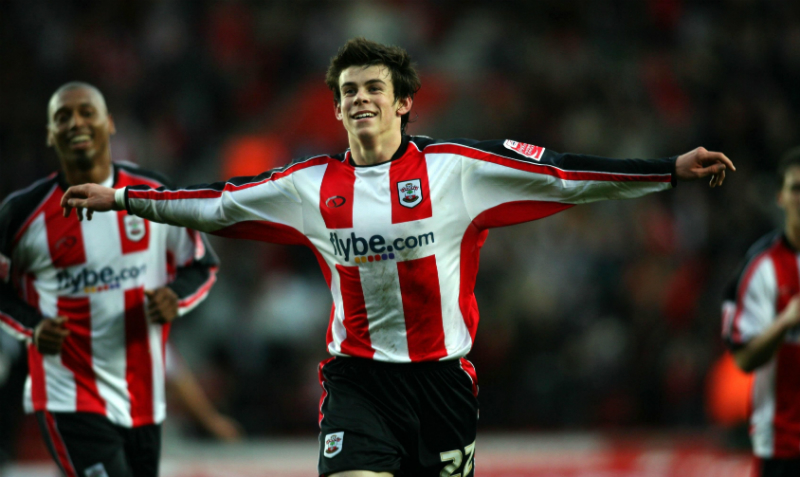
‘Bale was confident, without being arrogant’
Former Chelsea scout Gwynn Williams spotted John Terry when the Chelsea captain was a 13-year-old midfielder playing for Sunday League side Senrab FC. He says there are two qualities a player must have to make the grade.
“It’s all about the two a’s, ability and attitude, you have to have both,” he told FFT. “Ability, in my opinion, is decision making on a pitch. Can he see a forward pass? Can he beat another player? Can he play a one-two? If he’s a defender, does he stand up and intercept rather than tackle?
“John was a good passer of the ball and could get up and down the pitch. He never missed a training session and was a leader from day one. Even in the middle of winter he’d wear t-shirt and shorts.”
Related story: Damien Comolli: How to make it as a young player
It was that same combination of technical and mental quality that alerted Tottenham to a 17-year-old prospect at Southampton back in 2007.
“My scout, Mel Johnson, flagged Gareth Bale up to the club,” says former Spurs director of football Damien Comolli. “He said, ‘there’s this kid at Southampton, he’s outstanding, you have to come and see him'.
“He reminded me of Paolo Maldini because of his left foot and his pace. We met him and his family a number of times and he had a wonderful personality. He was very humble, but also confident without being arrogant.”
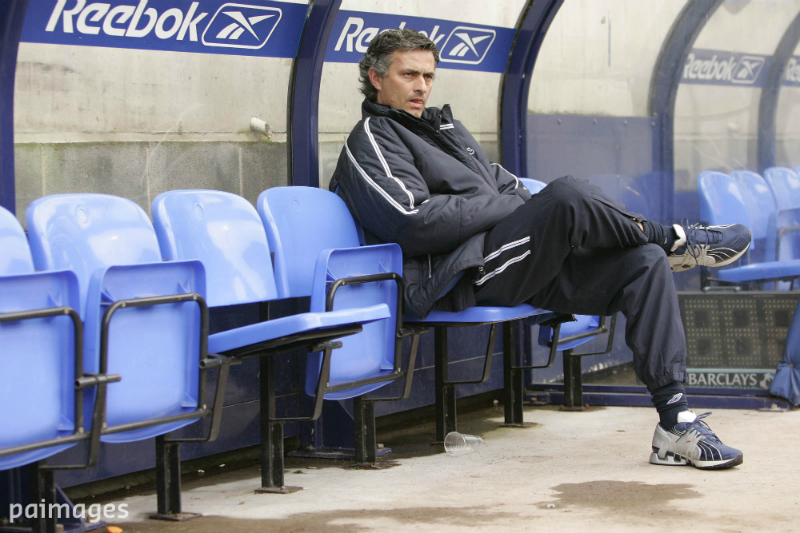
‘Players must fit in with the club’s culture’
However, it can be difficult for scouts to assess a player’s personality before they join a club. Williams remembers a former Chelsea goalkeeper who fell foul of Jose Mourinho during his first spell in charge of the Blues and subsequently failed to make single first team appearance for the club.
“On Mourinho’s first day, he told everyone they had to meet at the training ground at 7am,” he says. “It was a test to see how committed everyone was. Everyone got there apart from one player, [Yves] Ma-Kalamby. If a player doesn’t have the hunger and desire, they won’t make it.”
Related story: Scouting mistakes to avoid
Williams – who now works as a scout for Hull City - conducts extensive background checks to gauge a player’s character. “I speak to former coaches, ex-team-mates – you need to know what a player is like away from the pitch. Is he a drinker? Is he a shagger? Does he mess around?”
Brentford’s head of football operations, Robert Rowan, says the Bees look for personalities who fit with the club’s ethos: “If the club is making an investment, regardless of the size of that investment, it’s important that you make sure it’s as safe as possible.
“References can identify a lot of positives and a lot of negatives about a footballer’s character. We have a culture that we are proud of at Brentford, therefore it’s important that any player joining the club is not going to damage that culture but embrace it.”
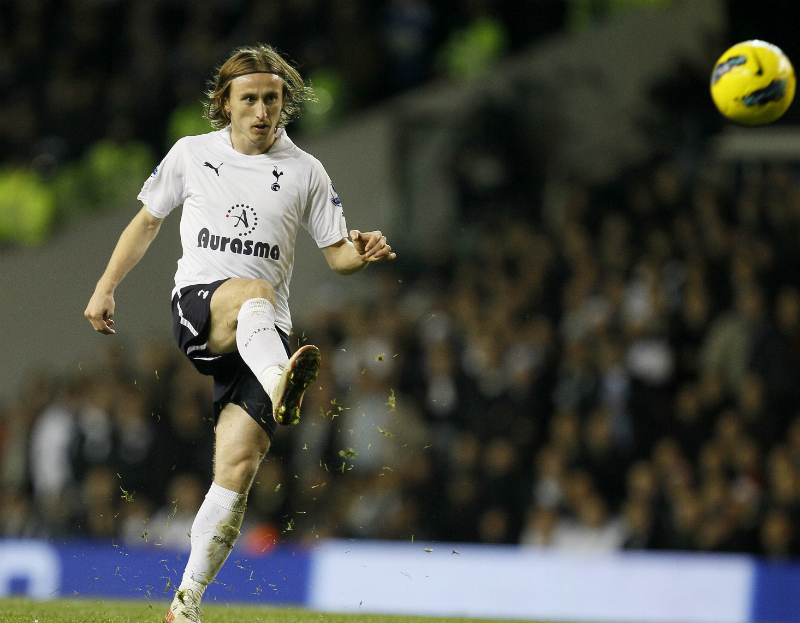
‘Data can’t explain a player like Modric’
Brentford are one of a host of clubs who use WyScout, Instatscout and Scout 7 – software packages which provide video clips of players from all over the world and individual statistics on potential signings at the click of a button.
“The head coach is responsible for building position profiles which explain the attributes required for each position to suit the club’s style of play,” Rowan explains.
“Those profiles are then translated into report format. Scout 7 measures the quality of answers for each area against the desired level set by the chief scout. The software then produces a list prospective targets based on the data entered.”
Related story: How to impress scouts at a trial
But can data really provide the same insight as the trained eye of a scout? Comolli was criticised for using this method to recruit players at Tottenham and Liverpool and he admits the approach does have its limitations.
“Technology isn’t advanced enough yet to explain the quality of a player like [Luka] Modric,” he says. “He’s a midfielder who doesn’t score many goals or make many tackles – so what exactly makes him so good?
“Our scouts at Tottenham spotted him playing for Dinamo Zagreb. They noticed his ability to force a player to pass sideways or backwards because his positional play was so good. Also, his first touch is always into space, which means he plays a lot of forward passes.”
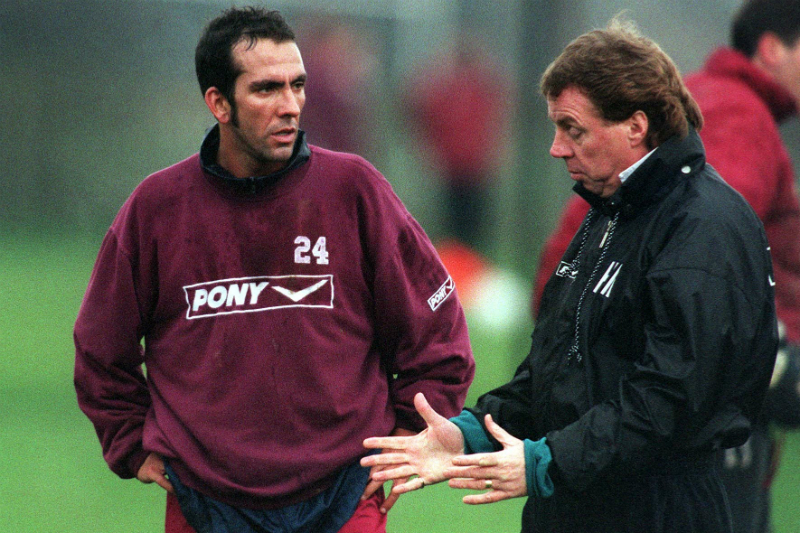
‘I gambled on Di Canio – he was a genius’
While background checks and data can help to build a profile of a player before a bid is made; there’s no measurement for the feeling of excitement that consumes a scout when they come across a rare talent.
“You’re always looking for that player who can do something different,” says Williams. “Joe Cole was the best player I ever had. He was playing under-13 football when he was 11. He had all the technical ability. He could use both feet, he had a great change of pace, he had vision. We’d beat teams 6-1 because of Joe.
Related story: How to get the best out of a big ego
“Jose Mourinho likes the same type of player. He likes players who can create. He likes players with flair and ability. At Chelsea we spoke about signing David Villa for a long time but we couldn’t pull the deal off.”
Redknapp remembers coming across Paolo Di Canio when the Italian was at Sheffield Wednesday. "I like players who give my teams problems and who I enjoy watching on the training pitch," he told FFT. "At West Ham I used to tell my players to man mark Di Canio because he’d always cause us problems.
“When the chance came up to sign him for it was a no-brainer, even though everyone told me he’d get me the sack. He was a genius. The great buzz of it all is finding a player like him, Modric or [Rafael] Van der Vaart – players who express themselves. That’s what it’s all about.”
Recommended stories:
Frank Arnesen: What you need to reach the top
Damien Comolli: What you need to reach the top
Eric Harrison's 3 top tips for young players
Tosh Farrell: Get the best out of young players
What makes a good talent spotter? Europe's top scouts tell FFT
